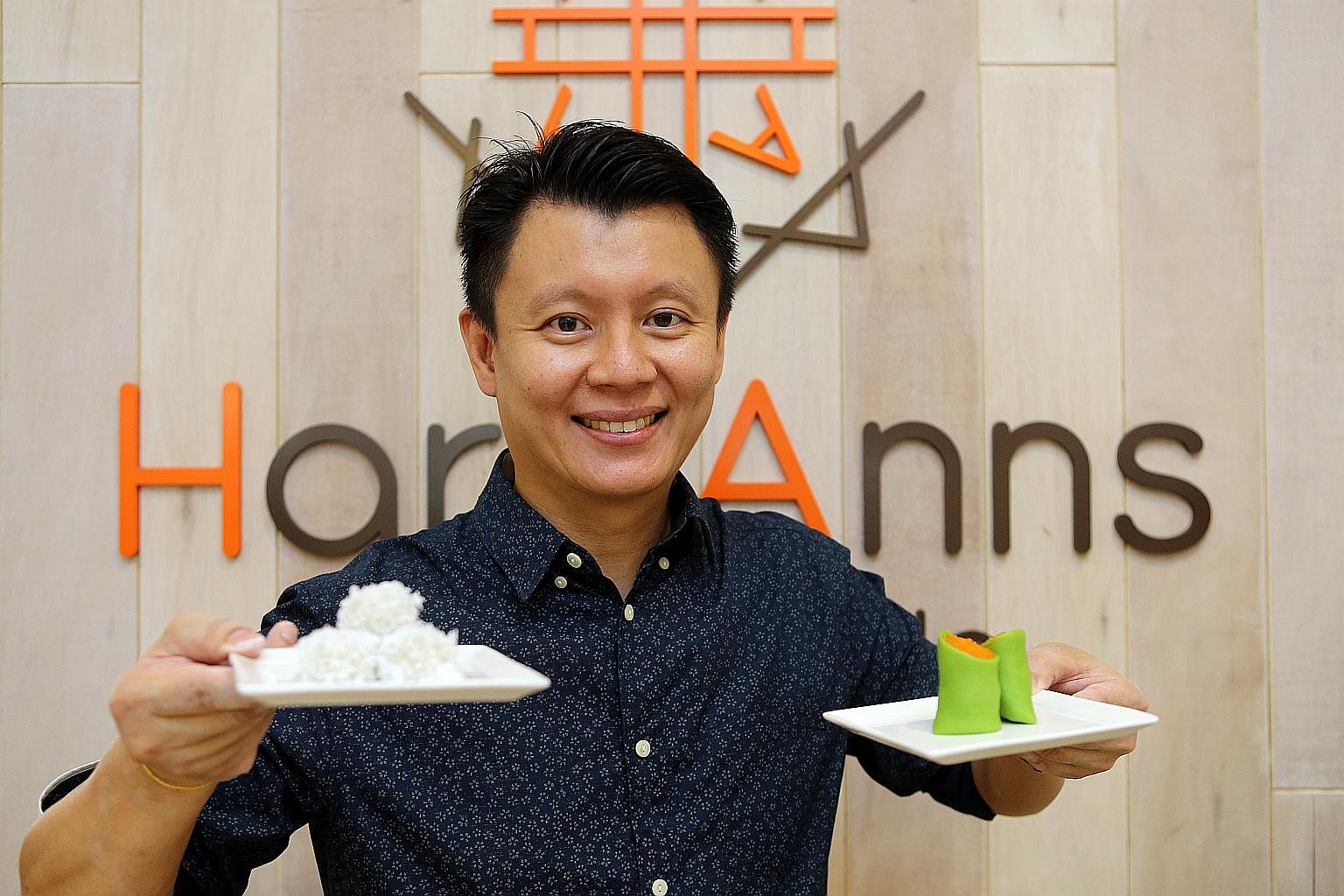SINGAPORE - Peranakan eatery HarriAnns started in the 1950s as a simple wooden push cart peddling glutinous rice and other traditional treats, but has now gone high-tech with an online store that has even racked up international customers.
Going digital has proved a life-saver for HarriAnns, which continued to thrive and even expand during the pandemic, thanks in part to the support of Enterprise Singapore (ESG).
Initially, the firm was badly hit, with three of its six outlets closing temporarily and revenue falling to just 10 per cent of pre-pandemic levels.
It looked to be at death's door but expanded its business online and accepted orders over the phone or via WhatsApp messages.
Chief executive Alan Tan said: "Encouraged by the positive response from our WhatsApp sales orders, we quickly added our hot food menu to our e-commerce site.
"From an average revenue of $500 to $600 a month from online sales previously, sales jumped to about $8,000 monthly, challenging the traditional thinking that no one will buy 'kueh kueh', laksa or curry chicken online."
But Mr Tan did not stop at just ensuring the firm's survival. He also sought to improve the quality of products, such as working to double the shelf life of handmade cookies to increase their commercial value.
The firm was supported by ESG's Enterprise Development Grant for innovation and productivity, which helped it to transition to improved packaging methods and automated equipment.
Mr Tan is also looking to transform some of his traditional Nonya dishes into ready-to-cook pastes that can be kept in a stable form and yet retain the taste and flavours of the dishes.

These pastes and the improved cookies can then be exported to other markets.
The firm also recently collaborated with a five-star hotel group to distribute its cookies in Thailand, the Philippines and China.
Mr Tan remains focused on expansion, supported by ESG's assistance in finding contacts and partners abroad.
"We are keen on taking our cafe concept out to regional markets such as Indonesia, China and Japan," he noted.
"The American, British and European markets may also be ideal for product distribution where our authentic Nonya pastes and heritage cookies could be in demand from the Singaporean and Malaysian populations residing in those countries."


